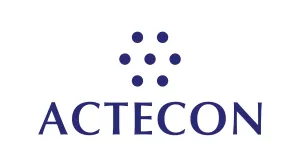The European Commission ("Commission") issued a series of penalties and eventually imposed more than EUR 111 million fine to four well known consumer electronics companies, namely Asus, Denon & Marantz, Philips and Pioneer as the concerned undertakings have involved in imposition of "fixed or minimum resale prices maintenance (RPM)" on their online retailers, which violates EU competition rules. These undertakings have engaged in the concerned practices mainly by restricting online retailers to set their own retail price for products such as hi-fi products, notebooks and kitchen appliances. The Commission has established that the resale price maintenance in online sales has a broader effect than the effect on the direct relationship between the supplier, retailer and consumer. This is because the price algorithm software that the online retailers use matches the retailers' price with the one of the competitors, which spread the effect among many online retailers.
Although this decision has been issued by the Commission, it is also likely to influence the Turkish Competition Authority ("TCA"), which closely monitors the developments in the European Union as the Turkish competition legislation is quite similar to the one of acquis. Therefore, this article will first discuss briefly the background of the mentioned EU decision, and then will evaluate similar matters dealt by the TCA.
Background of the Case
As highlighted in the Commission's Digital Single Strategy Publication (May 2017), the resale-price related restrictions are the most extensive restrictions of competition in e-commerce market within the European Union. This publication has also revealed the increased use of automatic software by big retailers which enables a retailer to monitor its competitors' prices and to adapt its prices in accordance with this monitoring.
Asus, Denon & Marantz, Philips and Pioneer intervened with online retailers' prices who were willing to sell the products at a lower price. The manufacturers put pressure on online retailers to keep the prices set out by the manufacturers themselves and the online retailers who did not comply with this request came across serious threats and sanctions such as blocking the supply. Since big online retailers generally use pricing algorithms which monitor and adapt the retail prices to the competitors' prices, the impact of four manufacturers' anticompetitive behaviour was broader. Within this scope, the said behaviour has affected many consumers who bought electronics online.
The anticompetitive behaviours of the concerned undertakings were determined as follows:
- Asus monitored and intervened with the resale prices of retailers in Germany and France for specific computer hardware as well as electronic products such as notebooks and displays from 2011 to 2014.
- Denon & Marantz involved in resale price maintenance in Germany and Netherlands, on audio and video consumer products like headphones and speakers from 2011 to 2015.
- Philips involved in resale price maintenance in France, concerning consumer electronics products such as vacuum cleaners, electric toothbrushes, coffee machines, hair driers, trimmers, kitchen appliances and home cinema and home video systems from 2011 to 2013.
- Pioneer limited the retailers' capacity to sell cross-border to consumers to sustain different resale prices in different Member States from 2011 to 2013 within 12 Member states (namely Germany, France, Italy, the United Kingdom, Spain, Portugal, Sweden, Finland, Denmark, Belgium, the Netherlands and Norway).
As a result, the largest fine was imposed on Asus, where the company has to pay EUR 63.5 million as a result of this decision. Similarly, Philips face a EUR 29.8 million fine, whereas this amount is EUR 10.1 million for Pioneer, and EUR 7.7 million for Denon & Marantz. The fines are totalling up to EUR 111 million. In this regard, it should also be noted that thanks to their cooperation, the concerned companies were granted a reduction between 40% (Asus, Philips, and Denon & Marantz) and 50% (Pioneer).
The TCA's Possible Approach to Resale Price Maintenance in Online Sales
The TCA is yet to have an opportunity to evaluate resale price maintenance practices in online sales. However, it is likely that the TCA will follow the Commission's practice and take into account the broader effect of such practices over the consumers due to the price algorithm software.
This inference is not merely based on the similarity between the competition law legislation of Turkey and the one of acquis. Indeed, before the publication of the current Guidelines on Vertical Agreements ("Guidelines") of the TCA in March 2018, competition law legislation of Turkey lacked guidelines and provisions on the restrictions regarding the online sales. However, the TCA in its Yatsan Decision1 in 2010 evaluated whether an absolute restriction on online sales may be allowed and in doing so, the provisions laid out in the EC's Guidelines on Vertical Restraints have been taken into consideration, which are very similar to the current Guidelines of the TCA. Moreover, in its Antis Kozmetik Decision2, the TCA examined a request of individual exemption to an online sales ban which dealt with a situation similar to the famous Pierre Fabre Decision of the French Competition Authority3.
As separate note, it's worth to mention that the TCA has in its recent decision changed its approach towards resale price maintenance practices. The TCA had considered resale price maintenance practices as per se violations. However, in its recent decisions, the TCA has followed a rule of reason analysis and thus a more effect-based analysis, which requires an evaluation of the effect of an RPM practice4.
In this regard, the penalties imposed to Asus, Denon & Marantz, Philips and Pioneer due to their "fixed or minimum resale prices" practices for their online retailers are likely to affect the TCA's current position regarding the e-commerce market in the near future. Yet, we shall wait and see how the TCA's new legal framework will be set.
Footnotes
1. TCA's decision dated 23.09.2010 and numbered 10-60/1251-469.
2. TCA's decision dated 24.10.2013 and numbered 13-59/831-353.
3. French Competition Authority's Pierre Fabre was later on upheld by the Court of Justice of the European Union (Judgement of 10 November 2009, Pierre Fabre, C-439/09, ECLI:EU: C:2011:649).
4. TCA's Çilek Decision dated 20.08.2014 and numbered 14-29/597-263; Dogati Decision dated 22.11.2014; numbered 14-42/764-340; Yataş Decision dated 27.09.2017 and numbered 17-30/487-211; Duru Decision dated 08.03.2018 and numbered 18-07/112-59.
The content of this article is intended to provide a general guide to the subject matter. Specialist advice should be sought about your specific circumstances.



